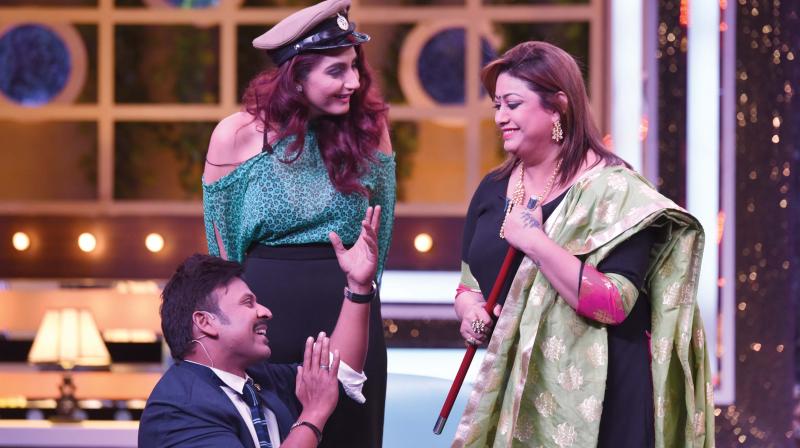A Kannada soap Englitch
The English language makes its presence felt in Kannada soaps and serials frequently, and some in the industry are not comfortable with this trend...

Even as Kannada films face stiff competition from other regional language movies, the Kannada small screen has retained a fair share of the audience with diverse programmes and shows catering to all.
However, the contemporary shows — daily soaps and special programmes have been accused of unnecessarily glorifying the English language, which according to experts is not the best way forward. A lack of original scripts and talented writers, many makers are ignoring the local essence and this is among the main reasons behind the growing trend of excessive English in Kannada shows, Bengaluru Chronicle reports.
“This is definitely a major concern with regards to Kannada TV in the recent era. A few years ago, there were hardly any programmes where languages, mainly English, were unnecessarily used in scripts. Some English words, which are more commonly used even by commoners in real life find their way into Kannada TV. Making characters speak mostly in English in almost every scene gives a wrong impression. The concerned TV channels also have a role to play and some do it to attract a more cosmopolitan audience,” says Raghu, a serial director.
Scriptwriter Santosh points out that unless a particular language becomes a barrier in terms of communication, mixing it up with a local language is acceptable. “However, it should not be in excess, and the audience should not be made to feel that they are watching shows or programmes entirely in another language. For instance, in Radha Ramana, some of the lead characters are often seen speaking in English and it is understandable that the lead characters are from the urban set-up. Raman studied in Australia, and is back to his native place, which is why he mostly speaks in English. There are even scenes where Radha is seen teaching Kannada to Raman. It also depends on the characterisation,” says Santosh.
Insofar as the audience is concerned, Meenakshi, who is an avid Kannada serial watcher, shares that she wonders how some shows claim to be pure Kannada entertainers but still use English. “I have come across a lot of talk shows and reality shows, where the anchors and even the participants tend to use English during their conversations. It is understandable if they are watched only by an urban audience, but what about the large chunk of the audience living in rural areas? It will be more convenient to at least carry subtitles,” adds Meenakshi.
Even the poor standard of literature in some Kannada films in the recent past have been a bad influence.

